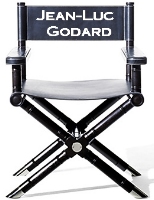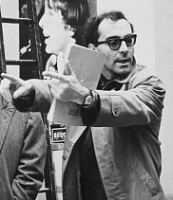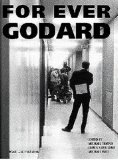

A philosopher and a culture critic who chose to work in the film medium, Jean-Luc Godard appeared on the international scene both as a writer for the Cahiers du Cinema as well as a leading representative of the French New Wave movement. His unconventional approach to everything from film structure to editing and sound, infuses his films with a playful iconoclasm and an idiosyncratic identity. His intellectual preoccupations are often centered around political themes (capitalism, democracy), sociology (the conventions, conformism and Faustian aspects of modernity), existentialism (human identity) etc. For over 45 years, Godard's metalinguistic experimentation with the elements of cinema, from jump-cuts to whispered voice-overs, has established him as one of the most persistently probing, thought-provoking and influential film-makers in history.
Suggested Reading
(CLICK COVER or TITLE)
For Ever Godard
by Michael Temple, James S Williams, Michael Witt
Director - Filmography and DVDBeaver links:
The Image Book (2018), Film Socialisme (2010), Notre musique (2004), Éloge de l'amour (2001), Histoire(s) du cinéma (1998), For Ever Mozart (1996), JLG/JLG (1995), Helas Pour Moi (1993), Germany Year 90 Nine Zero (1991), Contre l'oubli (1991), Nouvelle vague (1990), Keep Your Right Up (1987), Détective (1985), Hail Mary (1985), First Name: Carmen (1983), Petites notes à propos du film 'Je vous salue, Marie' (1983), Passion (1982), Slow Motion (1980) Comment ça va? (1978), Ici et Ailleurs (1976), Numero Deux (1975), Letter to Jane (1972), Tout va bien (1972), One P.M. (1972), Le Gai Savoir (1969), Week End (1967), La Chinoise (1967), Two or Three Things I Know About Her (1967), Made in U.S.A. (1966), Masculin, féminin (1966), Pierrot le fou (1965), Alphaville (1965), A Married Woman (1964), Bande à part (1964), Contempt (1963), Les Carabiniers (1963), The Little Soldier (1963), Vivre Sa Vie (1962), A Woman Is a Woman (1961), Charlotte et son Jules (1960), À bout de souffle (1960)
